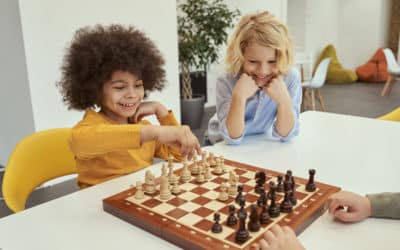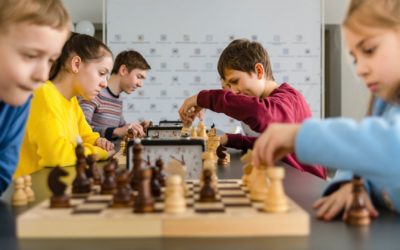School closures, covid-19 containment, risk of contamination. We, adults, are aware of the COVID-19 danger and the precautions to be taken during this period. The anxiety expressed by the world is more than palpable, thus creating a state of panic and constant stress. The rhythm of everyone's life is therefore changed and this unfortunately does not spare our little ones. TV news, feverish state of the adults and drastic emergency measures, the youngest are not sheltered from the anguish and the worry more and more visible in their eyes.
For the child, it is more complicated to understand this situation and to assimilate the risks. This is why it is necessary to explain it to the youngest in a more delicate way in order not to transmit them this state of general panic and not to disturb their evolution. And this, while continuing to maintain a normal life, with some daily changes. And yes, everything happens at home now and we will have to adapt to it!
How to proceed?
We start by setting an example during this period of covid-19 containment
The child is often a reflection of his parents. They are very attentive to their behavior and emotions. The image of an alarmed and panic-stricken parent will not help the child to live through this period of emergency confinement in the best conditions. The anxiety, stress and anguish that we experience and that we risk letting show in front of the youngest will only accentuate their fear and their incomprehension.
Start by working on yourself to better adapt to the situation. By organizing yourself also to make sure that everything runs smoothly in your home.
It is indeed essential to remain calm, positive and serene in front of the children. And this, while informing yourself as well as possible on the situation before explaining it to the youngest. This way, the children will be more confident and will be able to quietly go about their children's business while all this passes.
Covid-19 containment: just go with the little ones!
For children under 5, it's hard to understand why we don't go to daycare anymore. Why they don't go to the park, or see their sandbox friends anymore. But the good thing about this age group is the self-centeredness. Children under 5 years old have the ability to focus on themselves and their immediate environment. And this, while losing interest in what is going on in the outside world and sometimes even in their own home.
There is no need to worry a child who is too young to understand what is going on or to confuse him with details or information beyond his age. If they ask you questions, just explain things in a very simple and brief way. And make it clear that there is a "nasty" virus out there and that you should stay home to avoid it.
It is also explained to the child that everything will return to normal after the virus has left and that he/she will return to the nursery at that time. The simpler things are explained, the more the child will integrate this into his/her routine and rhythm of life as well.
We avoid dramatizing with the older ones
Beyond the age of 5, the child asks questions continuously while having an overdeveloped imagination. So, what if he feels a feverish and alarming anxiety in his family cocoon? Older children are certainly better able to understand, but this is no reason to alarm them with an excess of information. Fear is a new thing in children and if things are explained too brutally, the resulting fear will never disappear. The child will be anxious and worried about the smallest of things and even about the future. It is therefore important to choose the right words. Explain the situation in terms that are accessible to the child while trying to trivialize the situation. The situation is then clarified by simply describing the virus and its propagation system so that the child understands the prevention measures that surround it.
On the internet, you will find small explanatory guides, videos and stories which will help you to convey the information to the child without worrying him too much. Once you have clearly explained the why and wherefore, you can then inform the child of the hygiene measures and other precautions to be taken during this period.
Exposure to disturbing screens is limited during this covid-19 confinement
Covid-19 information is on every screen. This can be a real source of stress for children. Seeing images of people wearing masks and suits, increasing numbers of deaths and constant reminders to confine themselves and be careful, can indeed seriously frighten children. To avoid this, it is advisable to limit or even avoid exposure if possible. If older children want to listen to the news with you, take the time to put things in context while reassuring them. Don't hesitate to explain to children and adults alike that there are qualified researchers and specialists working hard to fight this nasty virus and that they will surely succeed in the end.
To do this, you can use the tool 1day1actua great website in the form of an interactive newspaper for children. On this site, the news is explained to children in a simple and accessible way. It is a great way to inform your children without alarming them too much.
In covid-19 confinement, we continue the courses but not in school mode!
During this time, children spend their days in their homes, where they play, rest and do their homework. They are not and will never be ready to see this peaceful haven turned into a school. It makes sense to them, and it doesn't make sense to them. They are not in school and neither you nor your babysitter, let alone your children, will be able to keep up with a 6-hour class schedule during confinement.
Also, specialists in child pedagogy, advise to stick to only 3 hours of class per day during this Covid-19 period. This 3-hour window, they say, can be chosen by the child. But the child should try to stick to it daily. Ideally, the child should have a more flexible schedule, alternating classes, fun activities and educational games. When the child learns while having fun, he or she doesn't even feel the time pass!
To help you in this adventure, various sites, platforms and TV channelsoffer all kinds of resourcesWe offer a wide range of programs, lessons, games and support for children. All you have to do is make a selection of the most relevant tools for your children. And then enjoy these moments of knowledge with your little ones.
Our selection:
- Lumni : ( courses, culture, games and educational videos )
- Pandacraft collaborative list of edutainment activities
- Echoes of school: educational games
- The Tibidous : courses, games, tutorials, games and reading
- Hello Kids coloring, games, reading and manual activities
We keep them busy so that they can keep their children's world
In order not to disturb the rhythm of evolution of our little wolves, let us take care to occupy them in a playful way. And this, while accompanying their daily awakening. Take advantage of the time spent at home, with your family, to organize games and experiences of all kinds. A treasure hunt, an escape game or an improvised play can be excellent alternatives. These types of cooperative activities greatly promote team spirit and reflection. But also, the development of all that is: logic, imagination and decision making. In the same spirit, board games and DIY are just as productive for kids.
The most important thing for the youngest during this period of covid-19 confinement, is above all, to preserve their souls of children. And this, by avoiding that they are in a state of anxiety that could alter their personality or their well-being. It is therefore essential to go the extra mile to ensure that they experience this confinement in a healthy and calm atmosphere.


